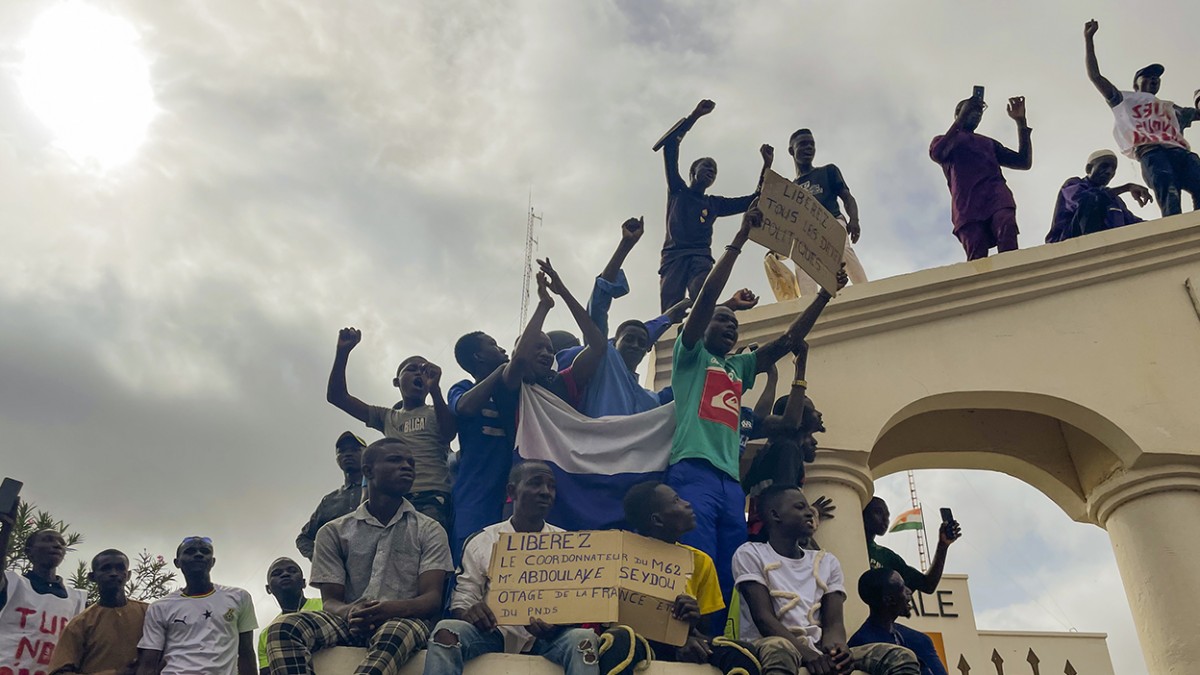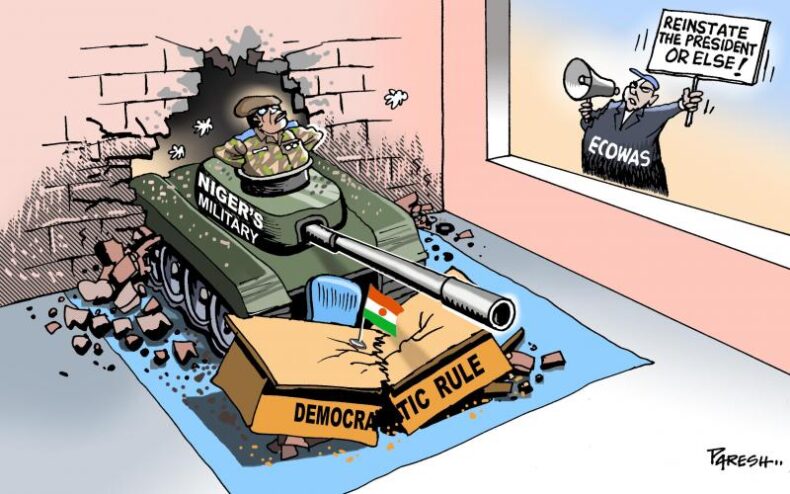“French Army leave our country!” Thousands of protestors in Niamey, Niger on Saturday gathered near a building which houses soldiers from France and raised slogans demanding their exit from their country.

The Background
The military junta of Niger led by General Tchiani declared himself the leader of Niger on 29th July 2024 after overthrowing the democratically elected President Mohammed Bazoum. The election of Mohammed Bazoum was the first smooth democratic transfer of power that the country had witnessed after the 1960s.
The military blamed the President for the rising insecurity and economic crisis in the region. Regardless of the presence of French and US military in the region, insurgency situation continued to worsen. Groups linked to Al Qaeda, the Islamic State which function along the Niger borders have caused the death of 198 people in 2022 according to Global Terrorism Index. Citing some of these reasons, junta explained its decision to overthrow the democratically elected leader.
Why the Anti-French Sentiment in Niger?
Niger was a French colony in the past. The anti-French sentiments saw an amplification after Mr Barzoum approved the redeployment of France’s Barkhane forces in Niger.
Niger, rich in Uranium also supplies a quarter of it to the French. As a result, the people have come to view this as colonial plundering and capturing of their resources by the French. The coup has demanded the French ambassador to exit the country as well.
There is speculation that Russia has used social media to influence and start the coup in Niger. Research has shown that content about Niger across 45 Russian Telegram channels affiliated with the Russian state or Wagner increased by 6,645% in the month after the coup, suggesting a keen interest of Moscow in exploiting the upheaval.
How has France Responded?
Paris has continued to ignore the scrapping of the military agreement by the junta on grounds of illegitimacy of their claims. Additionally, the demand for the French ambassador to be sent back has been responded by French President Emmanuel Macron on the basis of Article 22 of the Vienna Convention on diplomatic relations which states “embassy premises are “inviolable” and that agents of the host state “may not enter them, except with the consent of the head of the mission.”













